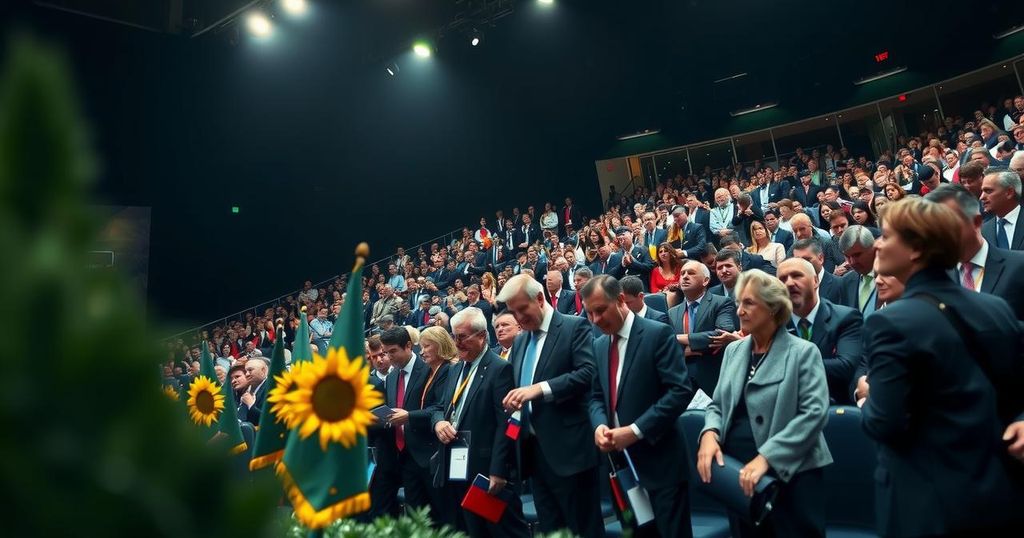At COP29, global leaders highlighted the severe impacts of climate change on their nations, focusing on urgent calls for climate finance to support vulnerable regions while addressing the absence of major carbon-emitting nations. The U.K. set ambitious emission reduction targets, emphasizing the need for developed nations to assist poorer countries facing extreme weather disasters.
At the UN’s COP29 climate summit in Baku, Azerbaijan, world leaders presented stark testimonials of their nations’ encounters with the increasingly severe consequences of climate change. Croatian Prime Minister Andrej Plenkovic illustrated this reality by referencing the devastating floods in Spain, Bosnia and Herzegovina, and southern Croatia, stating, “The Mediterranean, one of the most vulnerable regions, calls for urgent action.” The Prime Minister of Greece emphasized the need for honesty regarding the adjustments required to mitigate climate change’s impacts, indicating that Europe must confront difficult choices between rapid and sustainable strategies, especially in light of the recent heat waves and drought affecting his nation. Prime Minister Shehbaz Sharif of Pakistan highlighted the catastrophic flooding caused by intensified monsoon rains, attributing the severity to climate change. Similarly, while discussing the plight of the Bahamas, Prime Minister Philip Edward Davis underscored the financial burdens faced by nations in the Global South due to climate-related disasters, calling for support from developed countries and corporations. African nations also made appeals for green initiatives and enhanced resilience strategies against extreme weather, stating the urgent need to combat the effects of climate change across the continent. However, the absence of key players, such as the leaders of the largest carbon-emitting countries, including China and the United States, raised concerns about the commitment of major economies to comprehensive climate action. In contrast, U.K. Prime Minister Keir Starmer announced ambitious plans to reduce emissions by 81% from 1990 levels by 2035, escalating efforts to align with the Paris Agreement’s objective of limiting global warming. The central theme of COP29 revolves around climate finance, where wealthier nations are encouraged to provide reparations to lower-income countries suffering due to climate-induced calamities, facilitate transitions from fossil fuels, and bolster adaptive measures against climate change.
The topic of climate change and its repercussions has gained unprecedented attention at global forums like the UN’s COP29 climate conference. Nations are increasingly sharing testimonials of their experiences with natural disasters exacerbated by climate change. The conference focuses not only on acknowledging these impacts but also on fostering dialogue about necessary initiatives for adapting to and mitigating such challenges, with special emphasis on financial responsibilities of developed nations towards those most affected.
In summary, the COP29 conference highlights a critical juncture in the global dialogue on climate responsibility and action. The pressing narratives from diverse nations emphasize a collective recognition of the devastating impacts of climate change. Urgent measures are needed to support vulnerable countries financially, enhance resilience, and foster sustainable development practices globally, particularly as many of the world’s leading carbon emitters were notably absent from the discussions.
Original Source: www.bostonglobe.com






